-
New Zealand
Welcome to New ZealandProgrammes & CoursesFees and AccommodationAcademic Dates & FeesAccommodationStudent SupportCampus News
- Our Story
- Programmes
- Brochures
- News & Events
- Contact
- Find Course
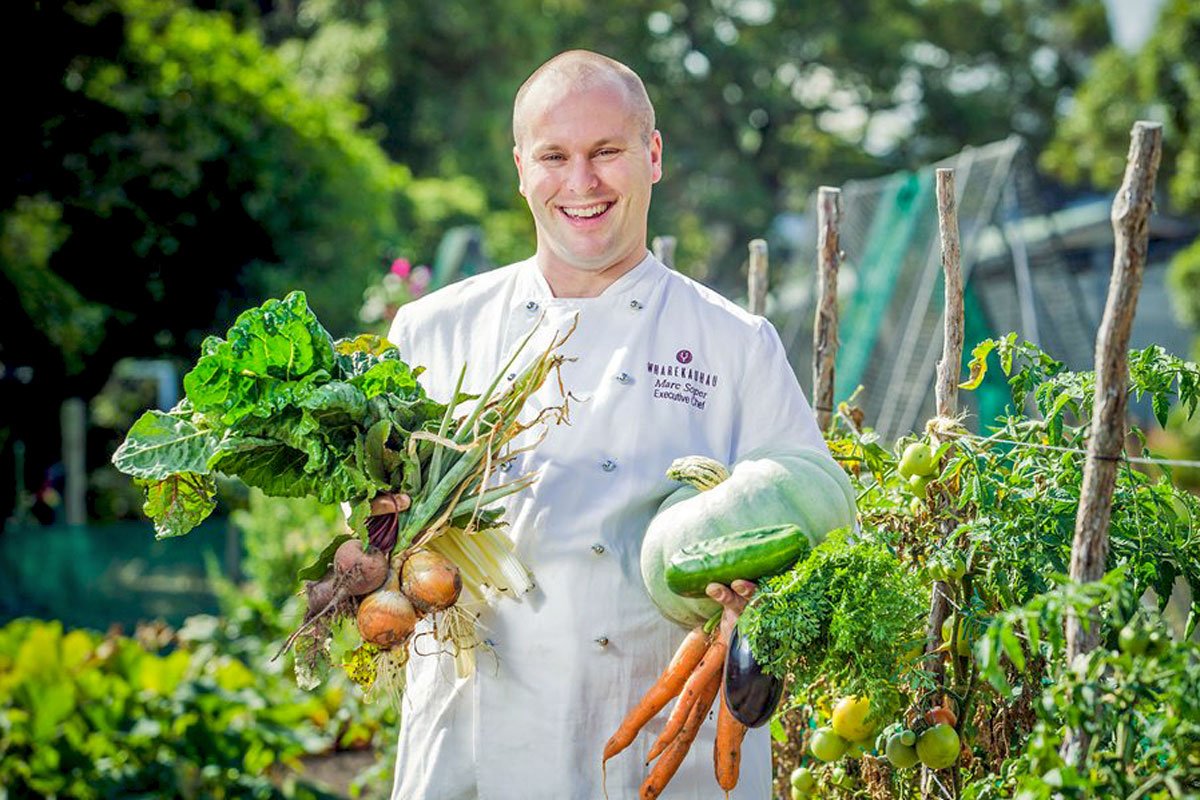 Having fed royalty and movie stars, winning Chef of the Nation in 2005 and 2016, Wellington Chef of the year in 2015 and 2016, and winning best Ora King Dish in 2016; Marc Soper is quite the accomplished Chef. Having recently accepted a teaching position at Le Cordon Bleu New Zealand for the Diplome de Cuisine programme, I interview Marc on his success, his culinary journey, and his outlook on the food and hospitality industry.
Having fed royalty and movie stars, winning Chef of the Nation in 2005 and 2016, Wellington Chef of the year in 2015 and 2016, and winning best Ora King Dish in 2016; Marc Soper is quite the accomplished Chef. Having recently accepted a teaching position at Le Cordon Bleu New Zealand for the Diplome de Cuisine programme, I interview Marc on his success, his culinary journey, and his outlook on the food and hospitality industry.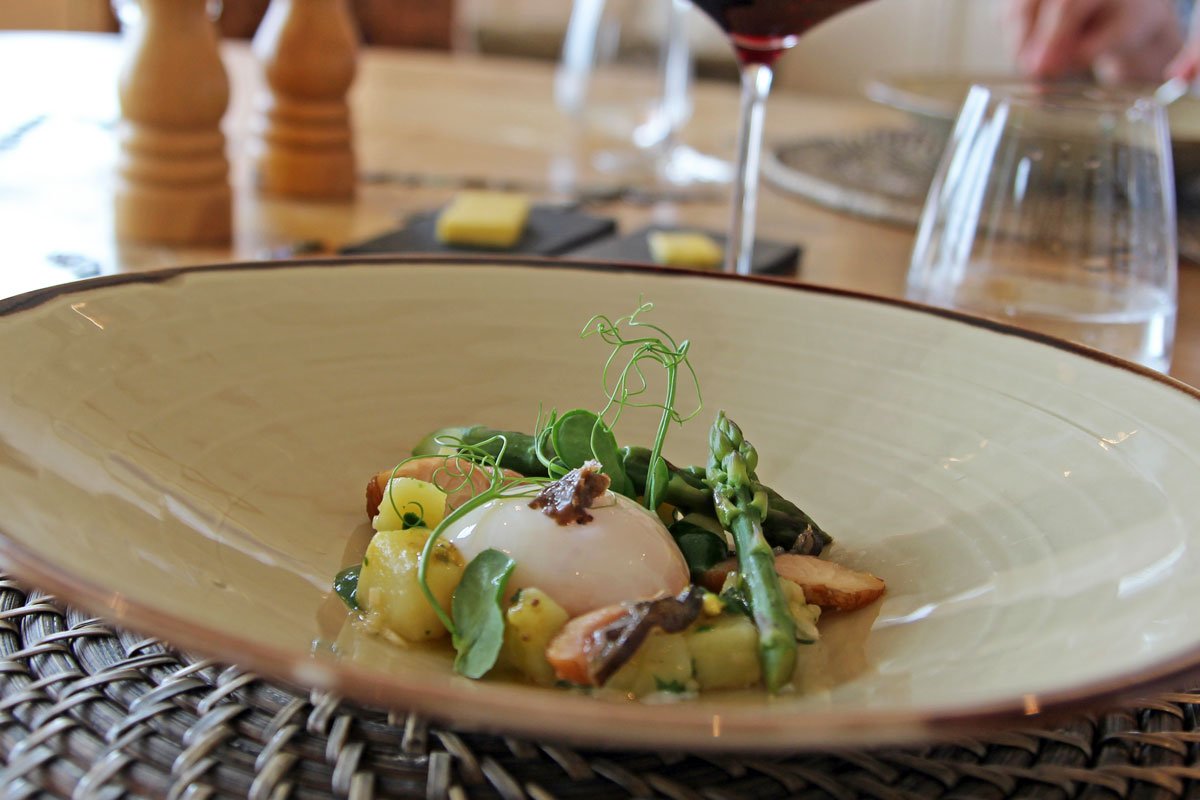
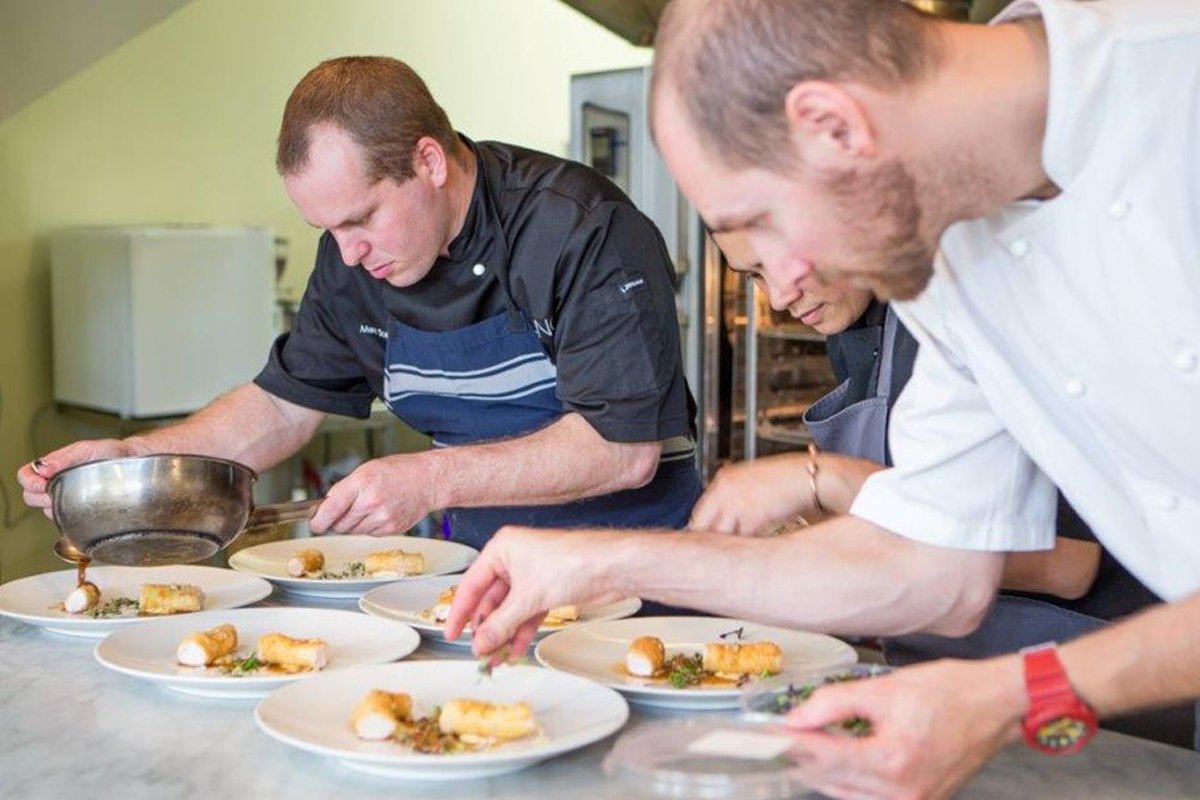
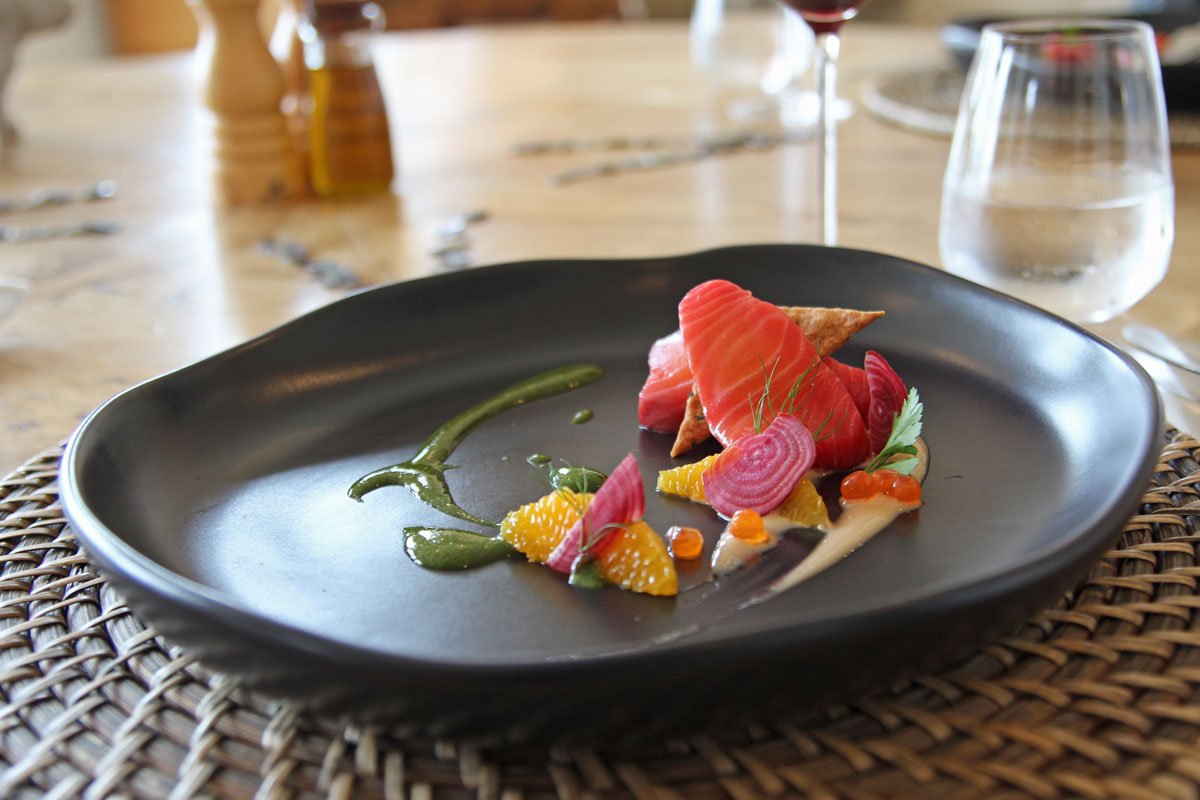
Tell me about working at the Wharekauhau Lodge.
"At Wharekauhau we try to challenge palettes as much as possible. We change our menus daily and use a lot of seasonal ingredients from our own farm and garden. Seasonability of produce is very important. We want to be able to grow as much as we can onsite. It’s also an interactive experience for the families who come and stay with us, particularly the children as they can sometimes be fussy eaters. To be able to take the children into the garden and show them the vegetables, pick out the ones they want for dinner and wash/prep the vegetables in front of them makes the child more likely to eat what’s on their plate, as they have been part of the process. We try to stick to local producers as much as possible for anything that we cannot source on site. It’s really important for the kitchen to know where its ingredients are coming from for quality assurance and traceability purposes. Reducing our carbon footprint is an important fundamental to Wharekauhau as a restaurant. When ordering ingredients we need to consider how and where they are being sourced as this contributes to the longevity of the environment."
What made you decide to take up the teaching position at Le Cordon Bleu New Zealand?
"Teaching has been something I’ve always wanted to do, I’m very passionate about upskilling and making sure that our industry continues to survive. It's been really cool to be able to come in and share experiences from an industry point of view with the students. It’s also been very fulfilling to see the students, who on day one, were absolute beginners and didn’t know how to properly cut an onion, putting out the professional dishes they are now."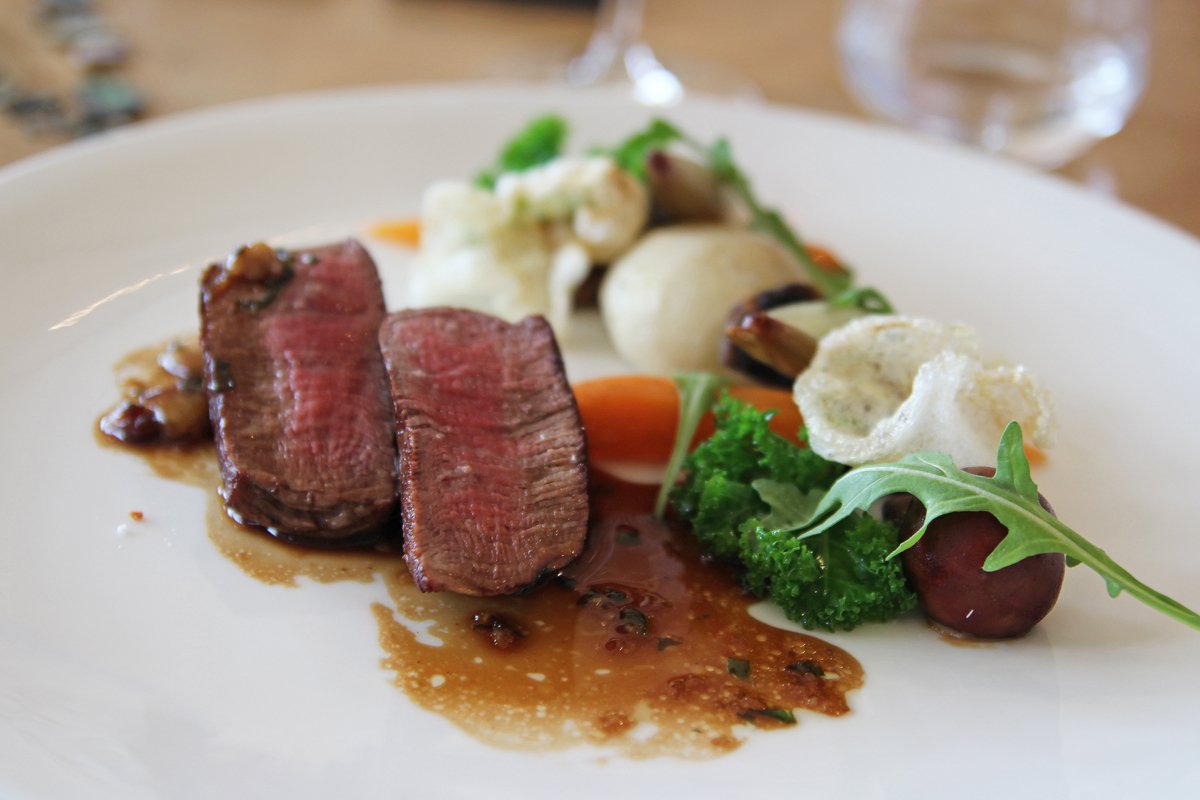 Given your experience, what advice would you give to students wanting to progress quickly through the kitchen?
Given your experience, what advice would you give to students wanting to progress quickly through the kitchen?
"Work under someone who is passionate and has spent the time learning their craft. Pace yourself, don’t try to climb the ladder too quickly, and learn as much as you can. Experience is incredibly valuable, unfortunately, the industry is so fast-paced and Chefs are trying to upskill so quickly that some of the basics are getting lost. It’s about taking the time to understand the fundamentals of cookery so you have the correct foundations and can learn properly. This is vital for the stability and success of the culinary industry going forward."
What is your favourite food to cook with?
"I have a fixation with salt. I have about seven different varieties and each serves a different purpose. I use rock salt and pink Himalayan salt for preserving, iodised salt for everyday use, and for different flavour aspects, I use black salt or smoked salt. Smoked salt works amazingly for certain venison dishes to bring out the gaminess of the meat. Lastly, I can never go past Marlborough flaky salt in the supermarket aisle." 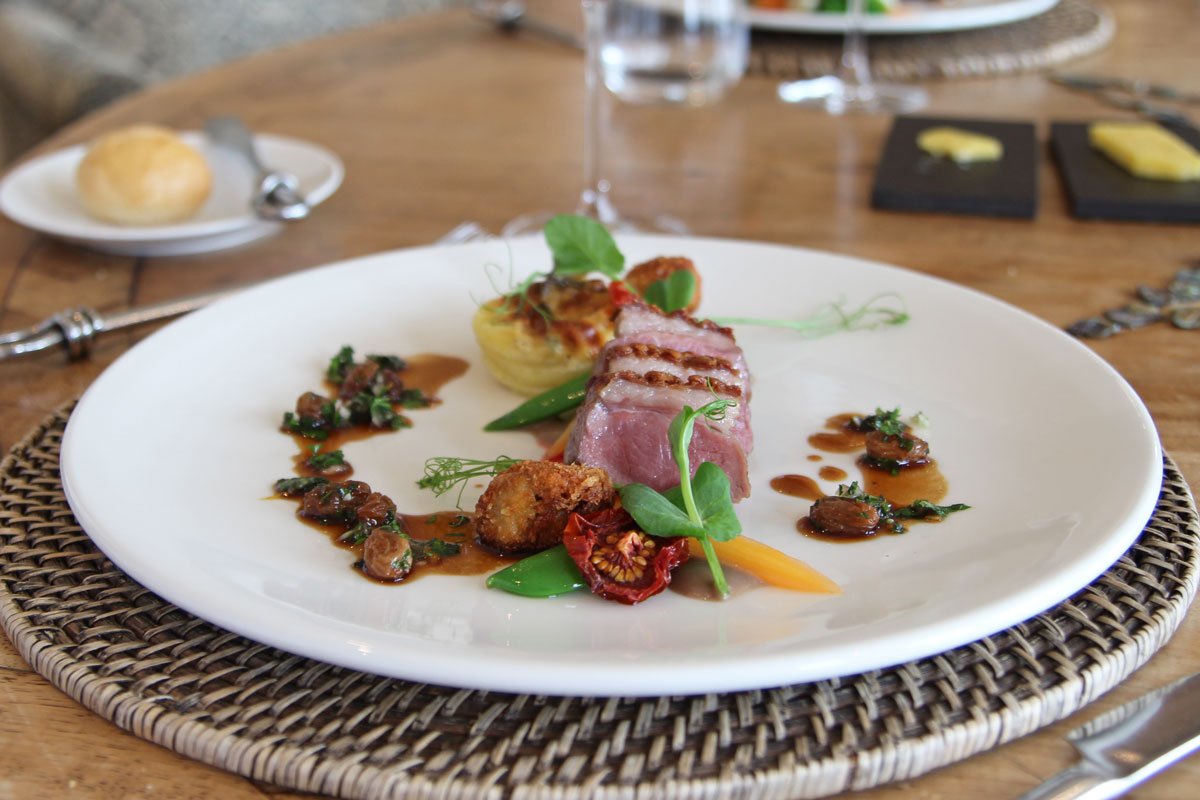
What has been an exciting industry trend you've seen come through?
"Using wild foods and foraging for native ingredients has been trending for a while now. Chefs are researching different properties of native ingredients and how to best utilise them which is great to see. Another related trend is Chefs researching how their ancestors were eating hundreds of years ago and are incorporating those ingredients and techniques into their dishes today. Someone who leading the field in this area is Monique Fiso who has a restaurant opening in Wellington this November called Hiakai that embodies this concept. I take my hat off to her as its Chefs like her that are going to keep the industry trends open and inspire people to become Chefs."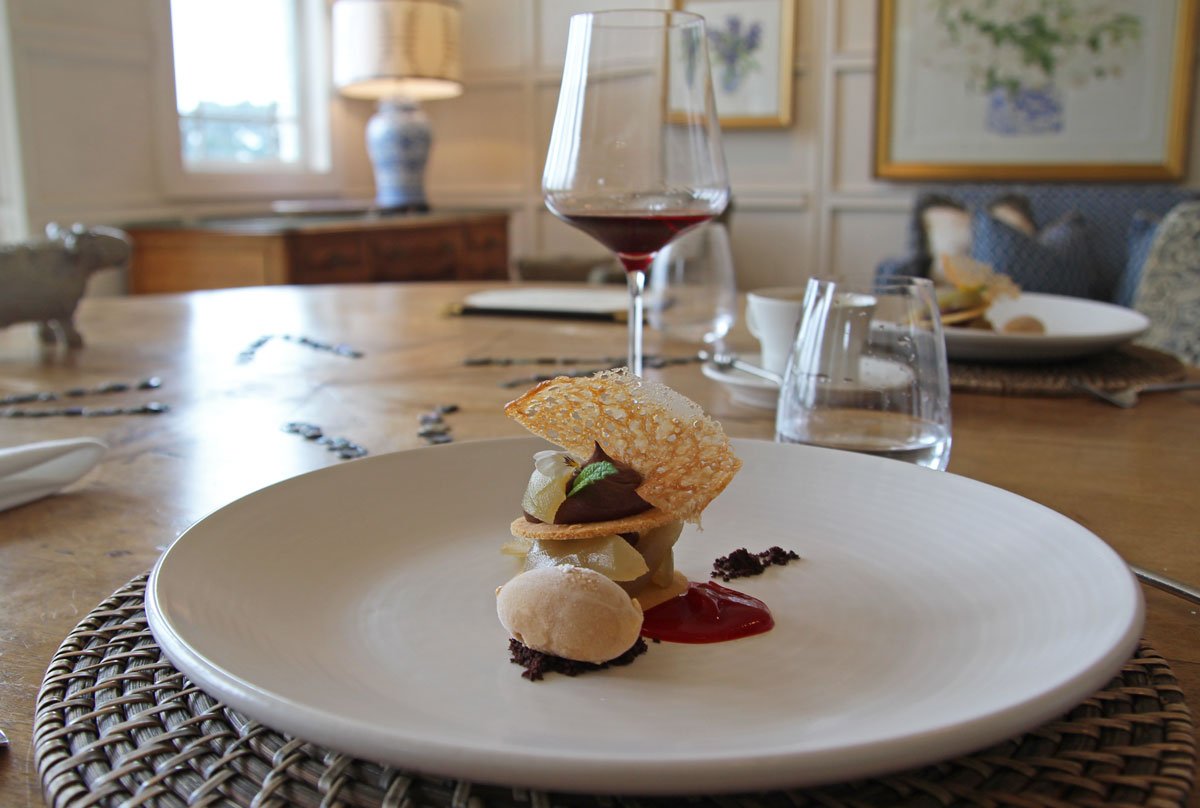
All photographs of food were taken at the Wharekauhau Lodge as part of Marc's "Trust the Chef" menu. This menu is open to the public for lunch as part of their casual dining experience. For more information click here.
Copyright © 2025 Le Cordon Bleu International B.V. All Rights Reserved.